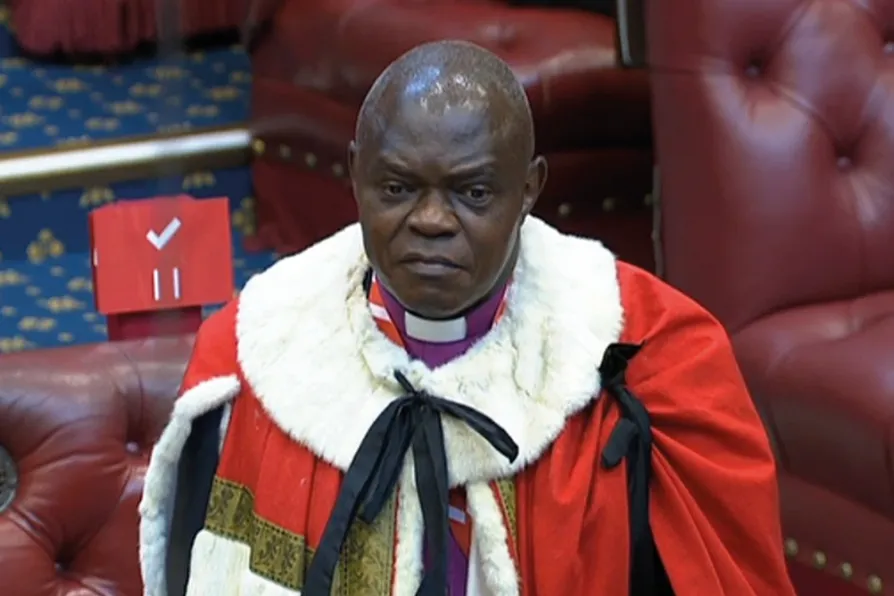All major Las Vegas Strip casinos are now unionised in a historic victory for labour, says RIO YAMAT
Bishops against pawns
Why are 26 seats in our legislature still reserved for a group from one single religion to vote with the Tories and oppose progressive reforms, asks STEVEN WALKER

 UNDEMOCRATIC: Baron Sentamu is sworn in to the House of Lords to take one of the 26 seats reserved for Anglican bishops
UNDEMOCRATIC: Baron Sentamu is sworn in to the House of Lords to take one of the 26 seats reserved for Anglican bishops
KARL MARX famously said that “religion is the opium of the masses,” distracting working-class people from taking revolutionary action.
Over 150 years later there is a glaring anachronism at the heart of British politics which automatically allows unelected bishops to sit in the House of Lords.
Parliament awards 26 seats in the House of Lords to bishops of the Church of England. These bishops vote on legislation, make interventions and lead prayers at the start of each day’s business.
More from this author

The Woodcraft Folk was founded as a different form of youth organisation, with its founding principles rooted in co-operative, pacifist socialist ideas, writes STEVEN WALKER

When it comes to care homes it’s the same cynical Tory tactic of cutting public funding for the state-run service so that privateers can swoop in to provide a degraded service, writes STEVEN WALKER

Profiteering while being an elected MP is a practice as old as the hills, particularly for the Tories, writes STEVEN WALKER

People are facing a triple whammy of rising energy costs, a national insurance hike and a cut to universal credit — but with Starmer’s failure to step up, it’s now up to the unions to fight back, writes STEVEN WALKER













